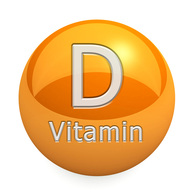Welcome to the Virtual MS Center!
Ask any question you want about Multiple Sclerosis and one of our experts will answer it as soon as possible.
 Here is my question: I have been reading about the impact of the 'gut' on MS. Are we really what we eat? What is your opinion about this and what can I do NOW in regard to eating that will help my symptoms? Answer: What we eat has a significant impact on our health, regardless of whether we have MS or not. Here is a blog I wrote a while back that should answer your question: READ BLOG Revere (Rip) Kinkel MD Director of the Multiple Sclerosis Program Professor of Clinical Neurosciences University of California San Diego Here is My Question:
I have always wanted to ask a neurologist their opinion about the case of Dr. Terry Wahls recovery from MS. More specifically, how likely is it that someone in her stage of disease (wheelchair for several years) reverses the disease as much as she did, without help of any medication? Is it possible that all that happened in her case is a giant placebo? Answer: Every question begets another question; that is the nature of scientific inquiry. The question you pose is logical but there is no independent data available to provide an answer. -Rip Kinkel, MD Diet and Exercise is Working Well...So Why Should I Go Back On a Disease Modifying Drug for my MS?7/10/2014
Here is My Question:
I was diagnosed with MS 14 years ago. I have taken disease modifying drugs but after a bad experience 5 years ago I have not been on any MS medications and instead eat healthy (nothing processed, just lean meat, fruits, veggies...) and exercise about 5 times a week, including weight lifting and cardio. This appears to be as good as the results of a MS modifying drug. So why should I go back on medicine? Answer: This is a great question. People with MS take Disease modifying therapies (DMTs) to reduce their risk of relapses and their risk of the disease spreading throughout the central nervous system as detected by standard MR imaging. Reducing these risks has resulted in modest short term reductions in the risk of residual neurological abnormalities on examination after 2 years of therapy. It is hoped but difficult to prove that these short term (2 year) benefits of DMT result in less disability after many years of treatment (perhaps more than 10 years of treatment). Does this mean that DMTs are meant for everyone? The answer is no or at least, we don’t know for sure. First, clinical trials include only patients meeting certain entry criteria. These clinical trial participants tend to be younger, earlier in the course of the disease and have less disability than most patients seen in MS clinics. They also have fewer medical problems that can interfere with treatment. For instance, the average duration of disease in most MS clinical trials is between 5 and 7 years and the average patient has a minimal or no disability (all clinical trials actually exclude patients unable to walk at least the length of a football field). You report having MS for 14 years which already places you in a outlier group. Other information is not provided. So whether you should or should not be on disease modifying therapy depends on your circumstances and disease characteristics. Now here is a very important point for you to consider: while it is good that you have remained stable for 5 years off of disease modifying therapy this doesn’t mean much in the context of a disease that often takes 30-40 years to create problems for people. Patients often remain stable for intervals of 2-5 years and eventually develop problems from their MS. The real question should be, “what are my risk factors for disease progression and has there been any evidence of recurrent disease during my 5 years off of therapy?” Only a MS specialist with more information would be able to answer these questions for you. Remember the disease can be very active without any changes in your symptoms, at least for several years. If you haven’t checked in with an MS specialist in several years, I would recommend considering this in the future. By the way the things you are doing for your MS (diet, exercise and life style adjustments) are great and are likely responsible for you feeling as good as you do; keep it up and don’t let anyone tell your otherwise. But stating that the results of these activities are as good as taking DMTs is a false comparison and implies that one is a substitution for the other. Both are usually required for most patients to achieve long term beneficial outcomes. Rip Kinkel, MD  Here is a blog that was written about Vitamin D...CLICK HERE Here is a video about Vitamin D as well...CLICK HERE Also, please go to the search box at the top right side of this page and type in Vitamin D, as there is quite a lot about it on this website. -Rip Kinkel, MD  The easy answer to your question is no, I do not think that dietary manipulation is an effective way to manage your MS. But I would give the same response if asked if medications were an effective way to manage Multiple Sclerosis. MS, like many chronic conditions, can not be managed with any single remedy since the goals of treatment are diverse. I suppose if someone discovered a cure for the condition, you would only need to apply this cure and other treatments would lose their significance. Until this time any effective management strategy must reduce inflammatory responses in the central nervous system, protect cells from ongoing stress and neurodegeneration and assist in remyelination and regeneration. There is no dietary manipulation able to accomplish any of these goals by itself although dietary manipulation may play a role in the treatment process. As to which diet is most effective, no one knows the answer. -Dr. Kinkel Q. What is the connection between a high sodium diet and MS?
A. There is some very preliminary evidence from animal experiences and cell cultures that a high sodium diet may drive your immune system in the direction of a stronger inflammatory response that theoretically could result in increased damage in MS patients. While this data is not ready for prime time, so to speak, there are other health reasons to beware of using too much salt in your diet. The bottom line for now is to moderate your salt intake for overall health reasons. --Dr. Kinkel |
PLEASE NOTE: This information/opinions on this site should be used as an information source only. This information does not create any patient-HCP relationship, and should not be used as a substitute for professional diagnosis and treatment. Please consult your health care provider before making any healthcare decisions or for guidance about a specific medical condition.
Archives
June 2024
Categories
All
|